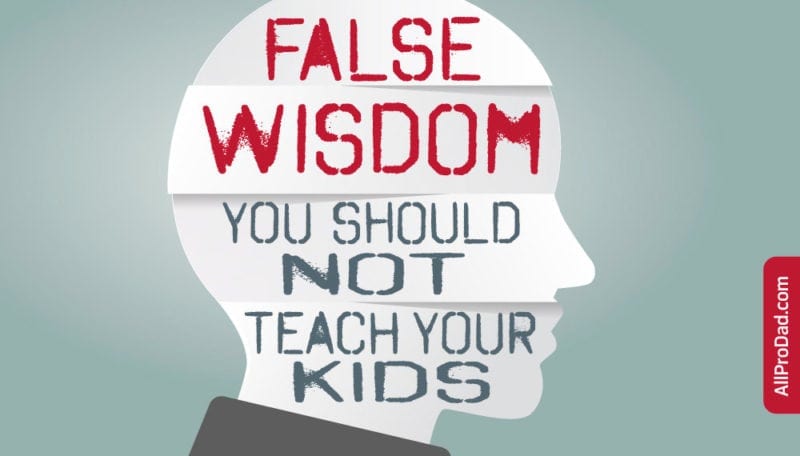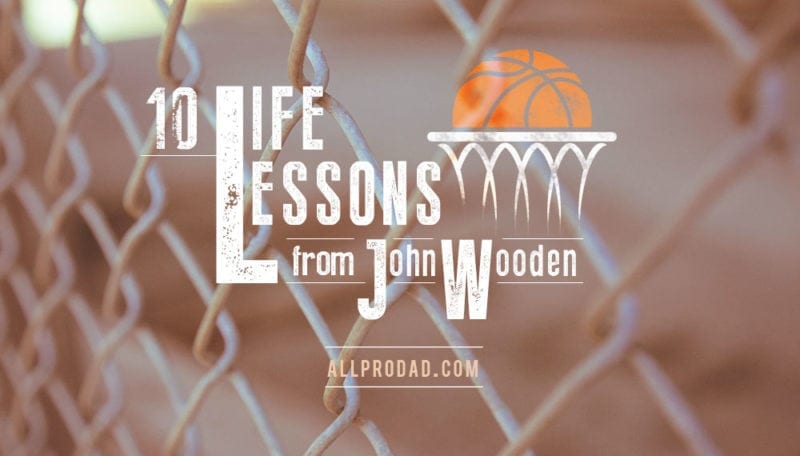I have a hard time with cliches. You hear them all the time. Something sounds good so people start saying it over and over. They even become mantras some live by. Normally, we hear them in response to a person’s difficulty or personal pain. They’re always shared with good intentions and usually by wonderful people. Besides the fact that many of these are mostly used to place an optimistic bow on a difficult situation, the real problem is this: Many are skewed truth masking as wisdom and dangerous.
Imagine holding two strings a mile long in your hand. If one string went straight and the other went only slightly left, they would appear to be on the same track. However, a mile down, they would be far apart. Believing a false premise sets us on the wrong course and causes us to end up off track. Sometimes dangerously so. The clearest test I have heard for true wisdom is it needs to be logically consistent, correspond to reality, and be relevant to life’s experience. The following commonly heard phrases are false wisdom you should not teach your kids.
“What doesn’t kill you only makes you stronger.”
Except when it severely weakens you. There are times when we go through the fire and come out on the other side with more maturity, resolve, and wisdom. That is not always the case. This statement has a way of burying unhealed wounds and minimizing painful experiences that need to be flushed out. Sometimes they never fully heal or take a lifetime. Deep hurts can breed unhealthy self-perception, behavior, and relationships. This makes a person weaker, not stronger.
“It’s all good.”
Except when it’s not because not everything is good. The main problem with this one is similar to the last one. It too often glazes over a host of wrongs. The main context I have heard this used is during relational difficulty. Someone utters it to simply move on from conflict. When the hurt caused isn’t well-communicated, it is doomed to be repeated. It’s healthy to forgive, be relationally “good” while still acknowledging that there were things done wrong. Identifying the good and bad will bring growth. Saying it’s all good can hurt the relationship in the long run.
“God never gives you more than you can handle.”
This is a well-meaning bit of encouragement to someone going through a tough time, but it is misquoted Scripture. The verse referenced here speaks specifically to resisting temptation. I see people all over the world confronted with situations and atrocities that are too much for anyone to handle. God may allow it for a number of reasons, but His main desire is to be intimate with us. He wants us to be dependent on Him–like a parent and child. If we could handle everything ourselves, we wouldn’t need Him. I would also argue that when we “handle” it our way, we tend to make a mess.
“If you put your mind to it, you can accomplish anything.”
No, you can’t. I will never play in the NBA no matter how hard I work at it. The problem with this saying is it gives a false promise. Applying your mind to something doesn’t mean you can reach any level of success. There are lots of factors that play into it. We all have different gifts, abilities, and talents. This certainly doesn’t mean we discourage our kids from going after lofty goals or trying new things. However, the best thing to do for them is help them identify their strengths. Then teach them how to refine those strengths, work smart and hard, and encourage them without giving them false promises of achievement. A more truthful saying would be: You’ll never accomplish anything with excellence unless you put your mind to it.
“Money is the root of all evil.”
This is another misquoted Bible verse. It’s missing three important words in the beginning of the sentence: “The love of money is the root of all evil.” There is nothing wrong with money, in general, or being wealthy. Money is used in just as many noble ways as bad. It’s a thing and things are not evil. Attitudes, misplaced love, and actions are evil.
“I’m glad I did (bad thing) because it made me into the person I am today.”
It is true that we can learn important lessons in the midst of doing the wrong thing, but we didn’t have to learn them that way. It subtly glorifies bad behavior and the pain it causes. If we communicate the above, we are modeling to our kids that our wrongs will eventually make a right. If you are a person worthy enough for your kids to emulate, it is more in spite of your past wrongs, not because of them.
Sound off: What false wisdom have you heard lately?












Huddle up with your kids and ask, “What makes something true?”